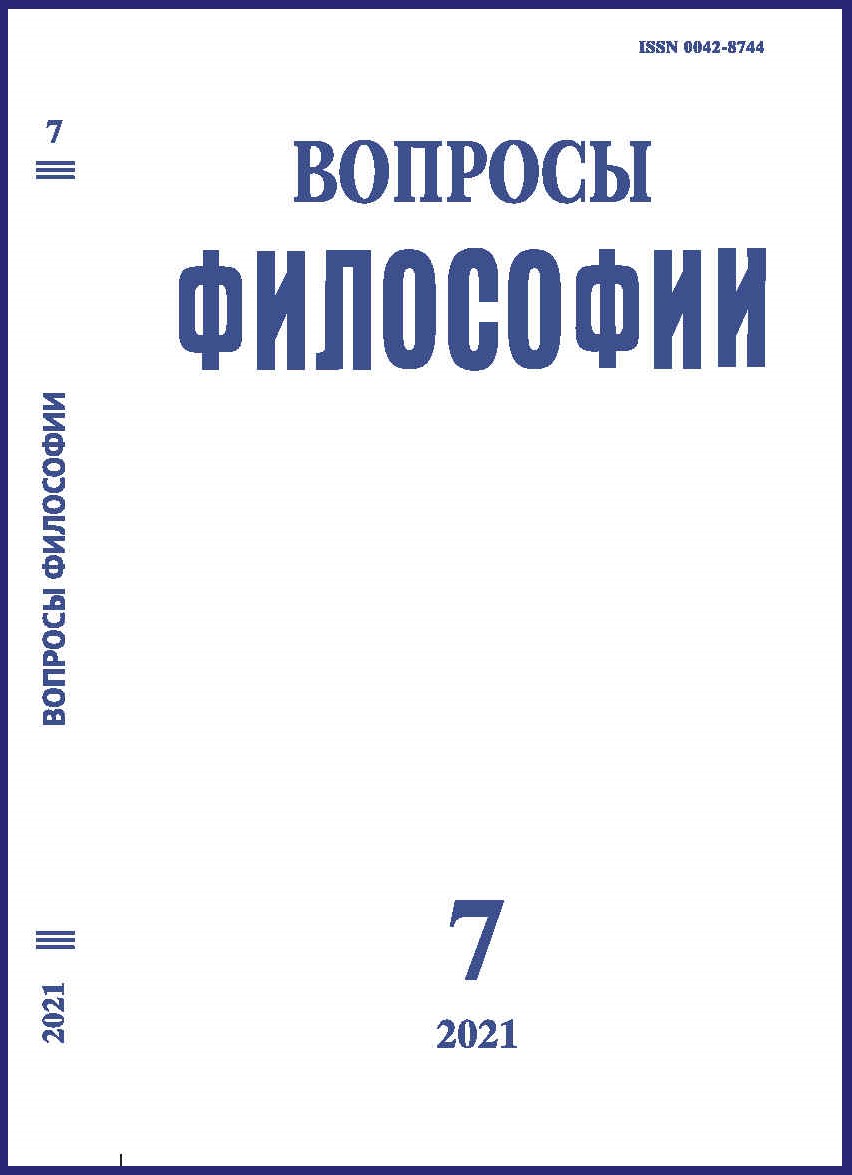The Inner Form between Logic and Semantics:W. von Humboldt – G. Shpet – R. Jacobson – N. Zhinkin. Zhinkin, Nikolai I., Letter to Pavel S. Popov, Publication by Boris I. Pruzhinin and Tatiana G. Shchedrina
DOI:
https://doi.org/10.21146/0042-8744-2021-7-91-104Keywords:
history of Russian philosophy, phenomenology, linguistics, psychology, inner form, language, speech activity, V. von Humboldt, G. Shpet, R. Jacobson, N. Zhinkin, P. Popov.Abstract
The reason for writing this article was a letter from Nikolai Ivanovich Zhinkin to Pavel Sergeevich Popov (has been reproduced hereafter), which discusses the essential logical-epistemological problem of the relationship between consciousness and language. The authors immerse the ideas expressed by N.I. Zhinkin in the late – psychological – period of creativity, in the field of his early – philosophical – interests, motivated by the conceptual constructions of his teacher G.G. Shpet (first of all, by his phenomenologically oriented studies of the inner form of the word). The concept of inner form, the European sources of its origin, the trajectory of its historical movement in Russia from philosophy (G.G. Shpet) to linguistics (R.O. Yakobson) and psychology (N.I. Zhinkin) is central for the authors of the article, as well as the semantic transformations that occur with him during the transfer from the sphere of philosophy to specific scientific areas of knowledge. At the same time, the historical continuity of Russian pre-revolutionary philosophy and scientific and humanitarian thought of the Soviet period is demonstrated. In methodological terms, the authors focus on the features of philosophical ideas’ application in their projection onto the emerging positive scientific research itself. When a positive (albeit humanitarian) science assimilates any approach initiated by philosophy, it accentuates aspects of its conceptual content relevant to a given subject area under study, thereby determining its ideological and conceptual potential. Such a semantic limitation of philosophical ideas and concepts, arising in the course of their projection onto positive scientific research, stops their dynamics, which is inevitable retribution for their specific cognitive effectiveness.

